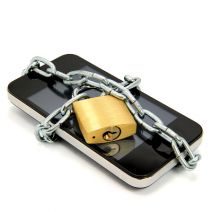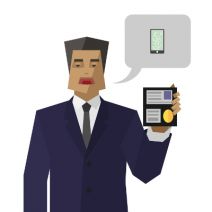iPhone users should be aware that, should you encounter a pop-up that reads “Your Apple iPhone is severely damaged”, you don’t need to be concerned—beyond the concern you’d have for any other threat, that is. This pop-up is just a recent iteration of a common phishing scam that aims to fool people into downloading apps that enable hackers to access personal information.
Directive Blogs
If you use almost any Apple products, you’ll want to check for and apply an update that will prevent your devices from being spied on. Apple has just issued an emergency software update for a critical vulnerability that was recently discovered.
The new updates were pushed out on Monday, September 13th, 2021, and include a major security fix for the Apple iPhone, Apple iPad, Apple Watch, and Apple Mac computers and laptops.
In a rare turn of events, Google and Apple have teamed up with local governments to help slow the ongoing spread of COVID-19. How would you like an app that could notify you if someone you had been in proximity to had tested positive for COVID-19? As useful as this collaboration could be to staunching the pandemic, many people are in uproar about it, and have begun to spread misinformation.
If you use an iPhone, iPad, or any other Apple device, you’ve probably used iMessage. iMessage is the popular built-in messaging app. It’s Apple’s version of the text message, but it’s packed with great features that iPhone users have grown very fond of. We looked around online for ways to access your iMessage in Windows, but only found workarounds that compromise your security.
We’re going to discuss these workarounds, but we highly recommend you do NOT attempt them. These are two of the most common procedures people have come up with to try to get iMessage to work on a Windows 10 PC, but both put you at a security risk.
In today’s mobile-centric world, portability is becoming more and more crucial to success in business affairs. This phenomenon can easily explain why tablets are commonplace in boardrooms and briefcases. With Apple and Samsung offering two heavy-hitting tablets (the Galaxy Tab S3 and the iPad Pro), we’ve decided to analyze their features head-to-head to find out which is the supreme option for your business needs.
It seems hard to believe that the smartphone has been around for over a decade. When Apple rolled out the first iPhone in 2007, it triggered a momentous shift in the way people access information. Over the past 10 years these devices have gone from somewhat of a novelty to a staple of modern computing. More data is transmitted and accessed by smartphone than by any other means, and Apple has been at the forefront of this computing shift from its inception.
 Do you remember the good old days when a simple magic trick was capable of bringing a smile to anyone’s face? Optical illusions, card tricks, or sleight of hand; all of these are basic tactics used by the average magician. However, Simon Pierro, a German magician, uses his iPad to come up with mind-bendingly spectacular tricks that take advantage of modern technology.
Do you remember the good old days when a simple magic trick was capable of bringing a smile to anyone’s face? Optical illusions, card tricks, or sleight of hand; all of these are basic tactics used by the average magician. However, Simon Pierro, a German magician, uses his iPad to come up with mind-bendingly spectacular tricks that take advantage of modern technology.
 Ransomware has been spreading like wildfire over the past few years, but up until very recently, Mac users were spared from this troubling development. Now, security researchers at Palo Alto Networks have discovered what they believe to be the first instance of completed ransomware on an Apple device. As this threat is “in the wild,” Mac users should be wary of it and see it as a potential threat.
Ransomware has been spreading like wildfire over the past few years, but up until very recently, Mac users were spared from this troubling development. Now, security researchers at Palo Alto Networks have discovered what they believe to be the first instance of completed ransomware on an Apple device. As this threat is “in the wild,” Mac users should be wary of it and see it as a potential threat.
 Apple has been a major contributor to advancements in computing over the past few decades. Their iPhone was the first commercially available smartphone, and they continue to innovate with new and exciting consumer technology. However, one of Apple’s most recent decisions might be one of the most important for today’s cyber security world.
Apple has been a major contributor to advancements in computing over the past few decades. Their iPhone was the first commercially available smartphone, and they continue to innovate with new and exciting consumer technology. However, one of Apple’s most recent decisions might be one of the most important for today’s cyber security world.
 Mobile exploits are just as common as those found on legitimate operating systems like Windows, but many people just don’t understand this simple fact. However, this hasn’t stopped some folks from being cautious when using their devices. The latest exploit making the rounds, which takes advantage of the iPhone’s Siri or Android’s Google Now, will leave you speechless.
Mobile exploits are just as common as those found on legitimate operating systems like Windows, but many people just don’t understand this simple fact. However, this hasn’t stopped some folks from being cautious when using their devices. The latest exploit making the rounds, which takes advantage of the iPhone’s Siri or Android’s Google Now, will leave you speechless.
 With the new iPhone 6 release just a few short weeks ago, many users are excited to ditch their old devices and get the flexible new piece of hardware. Unfortunately, these users might not take into account that their phones could potentially hold private information which should be deleted before forking over the device.
With the new iPhone 6 release just a few short weeks ago, many users are excited to ditch their old devices and get the flexible new piece of hardware. Unfortunately, these users might not take into account that their phones could potentially hold private information which should be deleted before forking over the device.
 Apple is back with another iPhone! The Silicon Valley-based hardware and software manufacturer has released the new versions of their extremely popular iPhone series of devices. The two-headed approach that Apple took with their second incantation of the iPhone 5 (the 5s and 5c), is replicated this time out as well. After being surpassed by Samsung over the past two years, does the iPhone 6 and its larger version, the iPhone 6+, have what it takes to get Apple back on top?
Apple is back with another iPhone! The Silicon Valley-based hardware and software manufacturer has released the new versions of their extremely popular iPhone series of devices. The two-headed approach that Apple took with their second incantation of the iPhone 5 (the 5s and 5c), is replicated this time out as well. After being surpassed by Samsung over the past two years, does the iPhone 6 and its larger version, the iPhone 6+, have what it takes to get Apple back on top?
 It's a classic battle. Android versus iOS, a technological battle royale for our portable device hearts. It was a very interesting year for both platforms as iOS launched the largest revamp of its software to date with iOS7, and it seemed like every budget device out there was running some sort of Android software. Apple critics were quick to point out that their new software had astonishing similarities in both looks and feel to Android, while Android critics were quick to point out Apple devices with the new A7 chip were faster and more powerful than anything else on the market. So, who won out in 2013? The numbers may surprise you.
It's a classic battle. Android versus iOS, a technological battle royale for our portable device hearts. It was a very interesting year for both platforms as iOS launched the largest revamp of its software to date with iOS7, and it seemed like every budget device out there was running some sort of Android software. Apple critics were quick to point out that their new software had astonishing similarities in both looks and feel to Android, while Android critics were quick to point out Apple devices with the new A7 chip were faster and more powerful than anything else on the market. So, who won out in 2013? The numbers may surprise you.
 Apple is at it again. After record breaking sales of the new iPhone 5s, Apple announced a new product line with confidence. CEO Tim Cooke and his staff recently launched new MacBook models, the Mac Pro workstation, a new OS, a new iPad mini model, and the most anticipated highlight; the new iPad Air.
Apple is at it again. After record breaking sales of the new iPhone 5s, Apple announced a new product line with confidence. CEO Tim Cooke and his staff recently launched new MacBook models, the Mac Pro workstation, a new OS, a new iPad mini model, and the most anticipated highlight; the new iPad Air.


